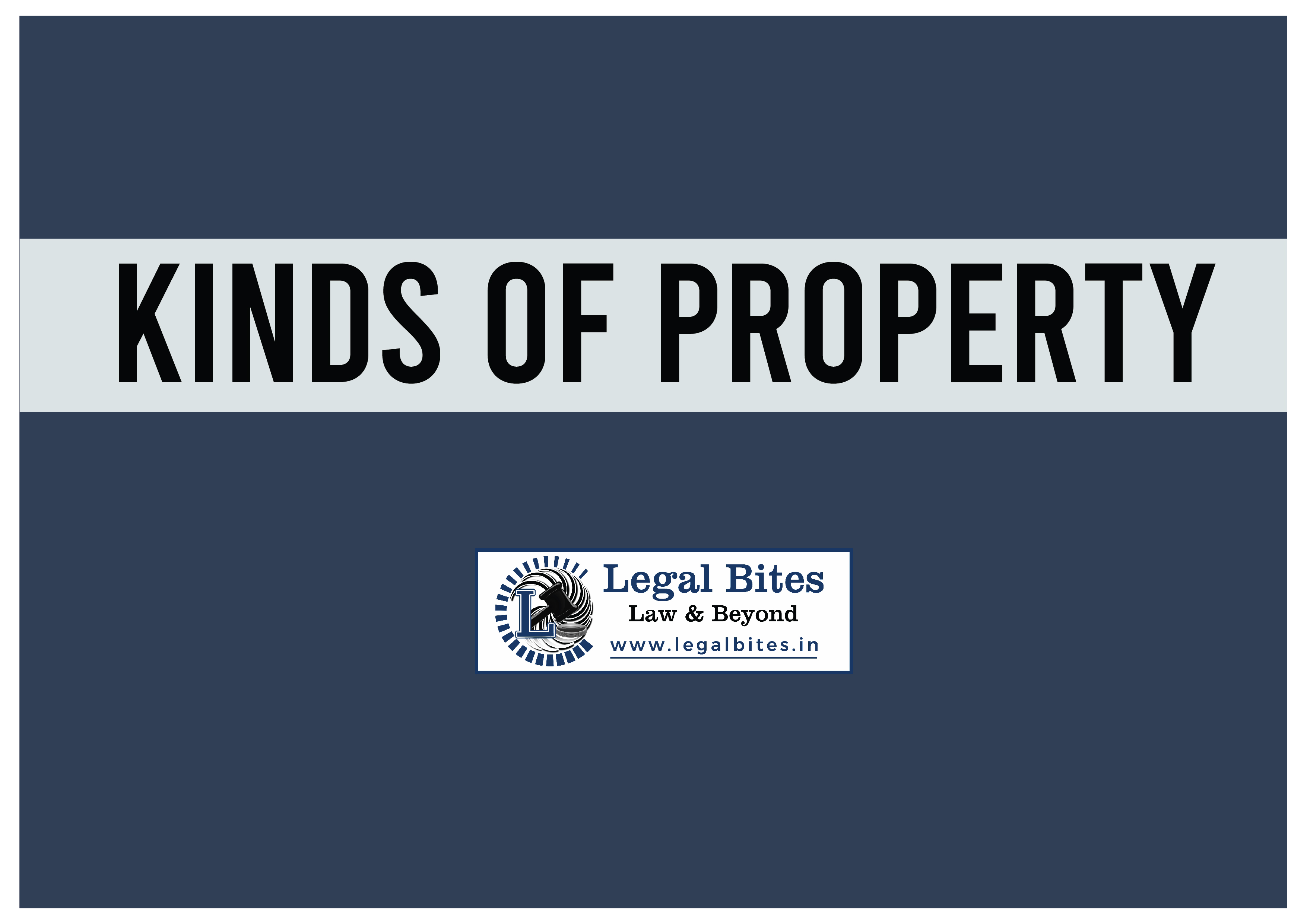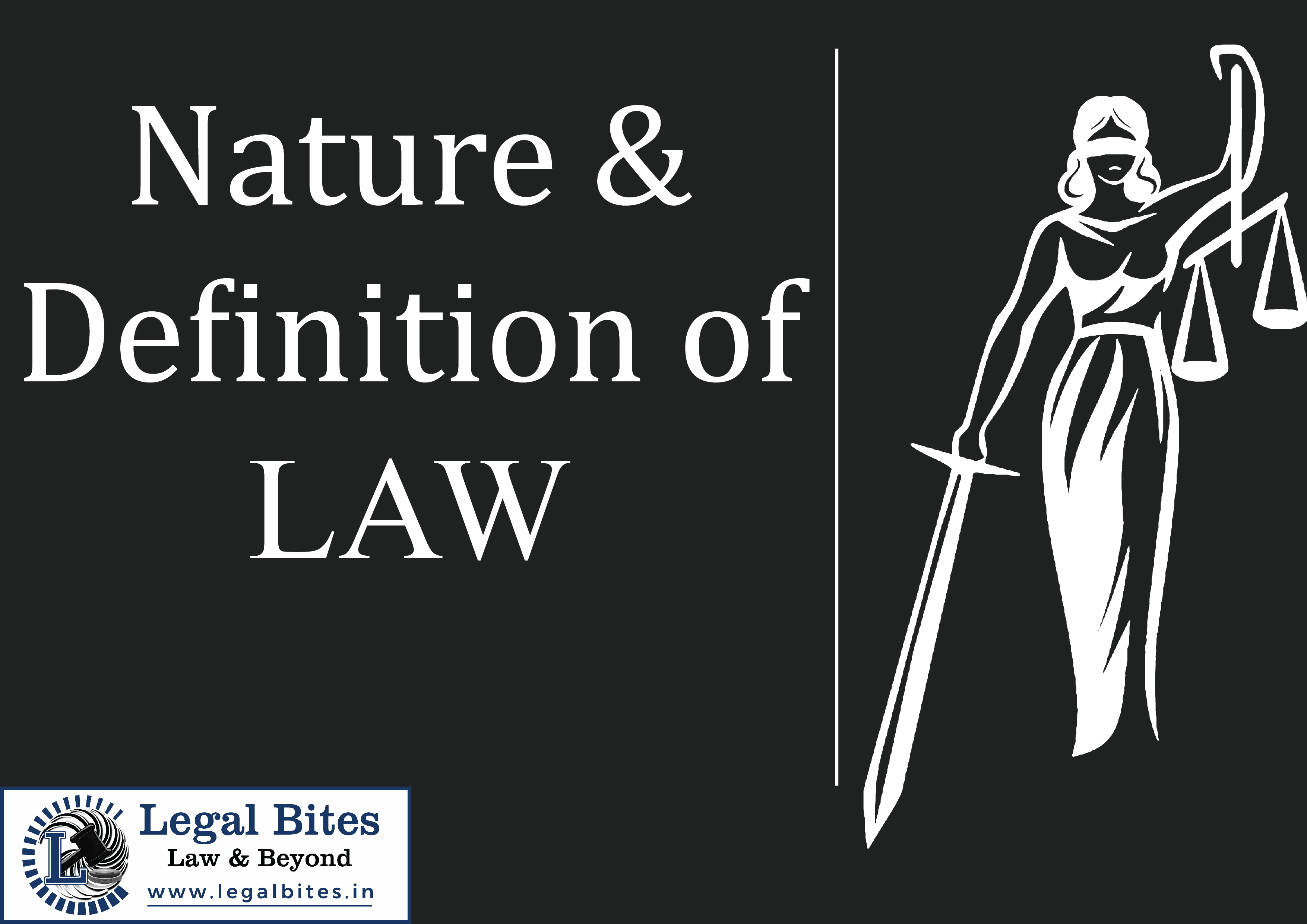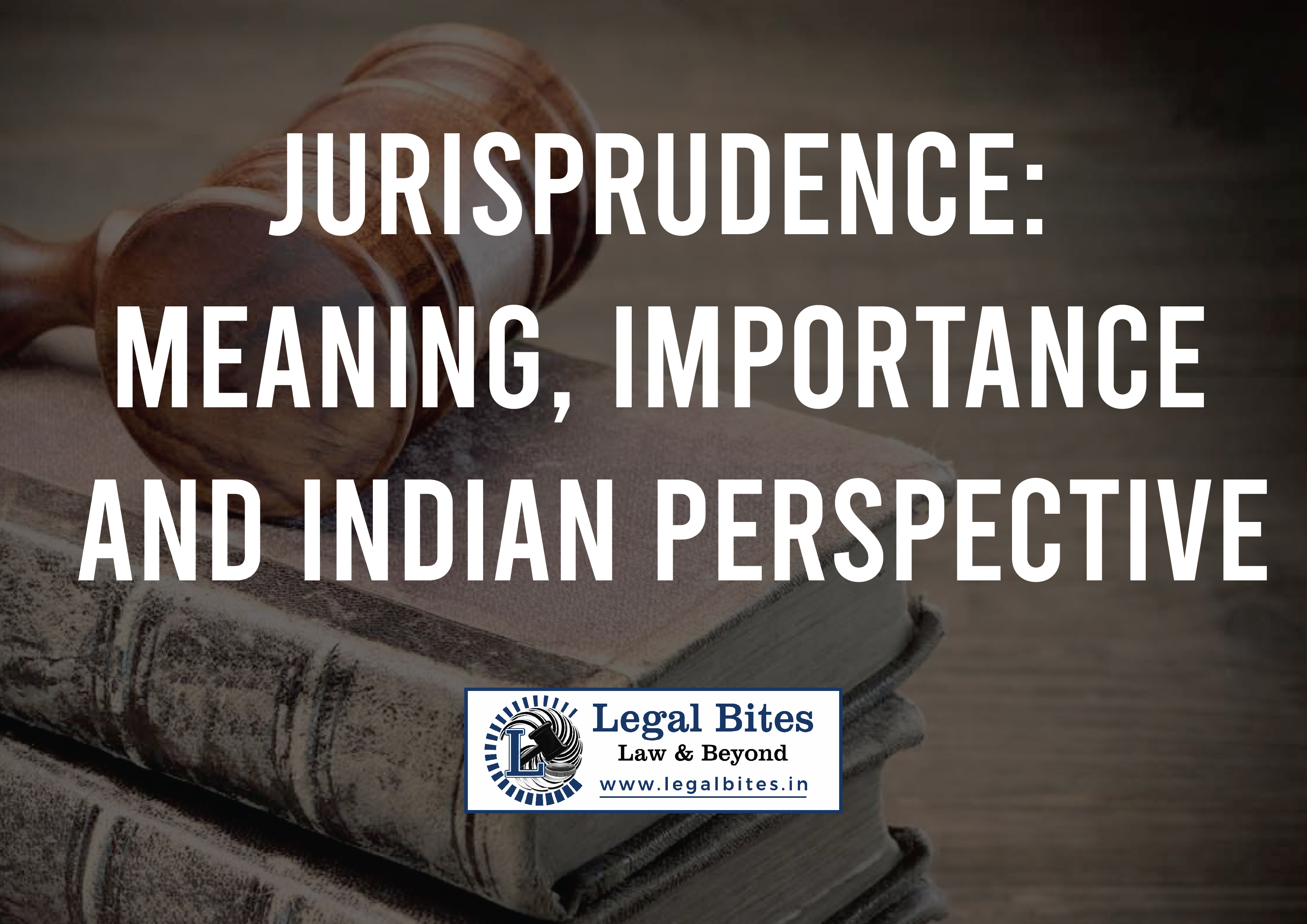Kinds of Property
Kinds of Property | Overview Kinds of Property Corporeal Property Immovable Property Movable Property Incorporeal Property Jura in re propria Jura in re aliena According to Salmond, substantive civil law consists of the law of property, the law of obligations and law of statutes. Law of property consists of rights against the whole world and, therefore, they are… Read More »
;
Kinds of Property | Overview Kinds of Property Corporeal Property Immovable Property Movable Property Incorporeal Property Jura in re propria Jura in re aliena According to Salmond, substantive civil law consists of the law of property, the law of obligations and law of statutes. Law of property consists of rights against the whole world and, therefore, they are rights in rem. On the other hand, obligations are only owned by one towards the other due to which the law of...
Kinds of Property | Overview
- Kinds of Property
- Corporeal Property
- Immovable Property
- Movable Property
- Incorporeal Property
- Jura in re propria
- Jura in re aliena
According to Salmond, substantive civil law consists of the law of property, the law of obligations and law of statutes. Law of property consists of rights against the whole world and, therefore, they are rights in rem. On the other hand, obligations are only owned by one towards the other due to which the law of obligations consists of rights in personam. He deems the law of status as a personal or non-proprietary right. He goes on to define the term property in four different degrees of generality:
- All legal rights- This is the widest possible interpretation of the term property. According to this interpretation, the property consists of all the legal rights that a person has. It consists of everything that is lawfully owned by him. This particular interpretation is obsolete and irrelevant today. However, it was very popular in the earlier days when even notable thinkers and scholars like Blackstone and Hobbes used it in their books.
- Proprietary Rights (dominium and status) – Property does not include any personal rights. It only includes proprietary rights, that is, rights relating to his estate. Thus, land, chattels, shares and debts due to him are all his property whereas life, liberty and reputation are not. This is completely against Locke's ideas. This particular interpretation of the term is quite popular today, however, there are so many varied interpretations that nothing can be said with absolute surety.
- Proprietary Rights in rem (dominium and obligatio) – This consists of only those proprietary rights which can be enforced against the whole world, that is, those that are in rem. Such rights constitute the law of property, whereas, proprietary rights in personam constitute the law of obligations. According to this approach, patent or copyright or estate held under a lease or freehold estate are all property, whereas, debt due to a person or benefit of a contract are not.
- Corporeal property (dominium corporis and dominium juris) – This is the narrowest possible interpretation of the term. It only consists of the material objects owned by an individual.
The Supreme Court of India has defined the term 'property' as,[1] "Property means the highest right a man can have to anything being that right which one has to lands or tenements, goods or chattels which do not depend on another's courtesy. It includes ownership of estates and interests incorporeal things, and also rights such as trade-marks, copyrights, patents and even right 'in personam' capable of transfer or transmission, such as debts, and signifies a beneficial right to or a thing considered as having a money value, especially with reference to transfer or succession, and of their capacity of being acquired."
In India, the right to property was initially given the status of a fundamental right under Article 19 of the Constitution of India. However, it was derecognized as a fundamental right and was shifted to Article 300A of the Constitution of India. Now, the right to property is generally interpreted as a part of Article 21 of the Constitution of India.
Kinds of Property
Property can be broadly classified into two kinds- corporeal and incorporeal.
Corporeal Property
Corporeal property refers to the ownership of material things. A person can be said to be the owner of a material thing only if he has all the rights with regards to the use of the object. Therefore, if one has only the right of way over land, he cannot be said to be the owner of the land. However, this does not mean that the owner has the right to unlimited use. He only has the right to general use. In other words, the owner can use his property only by lawful means or for lawful purposes. Corporeal property can be further sub-divided into a movable and immovable property.
Immovable Property
Immoveable property consists of the following:
- A determinate portion of earth's surface
- The ground beneath such surface right till the centre of the earth
- The column of space above the surface
- All objects, on or under the surface, in their natural state
- All objects placed by a human agency, on or under the surface, with the intention of permanent annexation. Thus, a wall of stones built on land without any mortar or foundations is a part of the land[2] whereas carpets, curtains, etc. fixed in a house are not a part of the house. This is so because the former has been done with an intention of permanent annexation whereas the latter has not been done with any such intention.
Movable Property
Any corporeal property which does not qualify as an immovable property can be said to be movable property. Examples of movable property include money, jewellery, car, etc.
Incorporeal Property
Incorporeal property refers to the ownership of immaterial things. It can further be sub-divided into jura in re propria and jura in re aliena.
Jura in re propria
The right to property may rest in material or immaterial objects. The rationale behind recognizing immaterial things as a subject-matter of the right to property is to protect the immaterial products of human skill and labour. Anything that a man creates is his. This includes the immaterial products of the human brain which can be said to be his intellectual property. These can be of the following kinds:
- Patents- Patent protects a man's invention. A person owns his idea of manufacturing something new or creating a new process.
- Literary Copyright- Anyone who puts in his labour to express a fact or thought in literary form owns all rights with regards to such production.
- Artistic Copyright- Artistic copyright protects the ownership of the various artistic designs such as paintings, drawings, sculptures, etc.
- Musical and dramatic Copyright- This kind protects the ownership of various musical works and dramas which are a product of the musician's or playwright's skill.
- Commercial goodwill- Anyone who carries out a form of business using his skills and efforts, owns all the goodwill that such business attracts. A special form of this is the right to trademarks and trade-names according to which, the person has the ownership of the name under which the said business is carried out.
Jura in re aliena
This is also known as encumbrances. Encumbrances refer to the restrictions imposed upon an owner with regards to the use of his own property. They are of the following kinds:
- Lease- It is an encumbrance upon a person with regards to the use of someone else's property that he is in possession of. It is essentially a result of the separation of ownership and possession.
- Servitudes- It is an encumbrance upon a person's right to limited use of a property that he is not in possession of. For example, right of way over someone else's land, right to passage of light across someone else's land to the adjoining land, etc.
- Securities- It is an encumbrance to ensure the fulfilment or enjoyment of some other right. These may be of two kinds- mortgage and lien. A mortgage involves the transfer of interest in immovable property for the purposes of securing the repayment of a loan or an existing or future debt. Lien refers to the right of a person to retain the possession of something that he was already in lawful possession of against another until his demands are fulfilled.
- Trusts- It is an encumbrance upon the ownership of a property to ensure that it is used for the benefit of a third person.
References
- Fitzgerald, P.J., 'Salmond on Jurisprudence', Twelfth Edition, N.M. Tripathi Pvt. Ltd., 1999.
- D. Mahajan, 'Jurisprudence and Legal Theory', Eastern Book Company (M.D.A. Freeman, ed.)
[1] R.C. Cooper v. Union of India, AIR 1970 SC 564.
[2] Monti v. Barnes, [1901] 1 K.B. 205.
Contributed by Tejas Vasani





